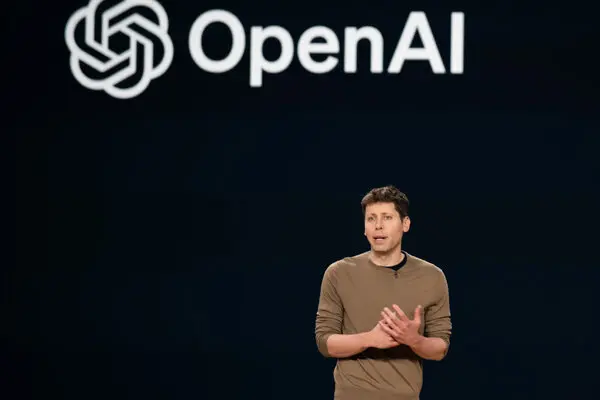OpenAI, the company behind the AI chatbot ChatGPT, has raised $6.6bn in its latest funding round, bringing its valuation to an astounding $157bn (£118bn). This positions OpenAI among the world’s most valuable startups, on par with investment giants like Goldman Sachs and surpassing the market value of many of America’s largest companies. Investors, including early backer Microsoft, continue to place significant bets on the future of artificial intelligence (AI).
The influx of capital will enable OpenAI to remain at the cutting edge of AI research and development. “The new funding will allow us to double down on our leadership in frontier AI research, increase compute capacity, and continue building tools that help people solve hard problems,” the company said.
OpenAI’s Growth and Challenges
OpenAI has gained considerable attention for its AI innovations and internal leadership challenges. Under the leadership of CEO Sam Altman, the company is transforming its original non-profit structure to a for-profit entity, a move designed to attract investors but one that has caused tension within the company.
Altman’s restructuring efforts have raised concerns among critics, including Elon Musk, one of OpenAI’s co-founders, who left the company in 2018. Musk has voiced his disapproval, stating that OpenAI has strayed from its original mission of developing AI for the benefit of humanity.
Despite the internal debate, OpenAI has brought artificial intelligence tools into the mainstream. The success of ChatGPT has sparked a wave of investments and interest in the AI sector, positioning OpenAI as a leader in the industry.
Key Investors and Terms of the Deal
The latest funding round attracted high-profile investors, including Thrive Capital, SoftBank, Nvidia, and Microsoft, which already holds a significant stake in OpenAI. The deal allows investors to renegotiate or reclaim their funds if the company’s transition to a for-profit structure does not materialize within two years. Additionally, the agreement includes removing the cap on investor returns.
According to Karl Freund, principal analyst at Cambrian AI Research, OpenAI’s valuation reflects the industry’s unprecedented state. “Unless AI is somehow a bust, which I cannot imagine, OpenAI will be a powerful force to be reckoned with,” he stated.
OpenAI’s User Base and Financial Outlook
OpenAI currently boasts an impressive 250 million weekly active users and serves over one million paying business customers. According to Reuters, despite being on track to generate $3.6bn in revenue, the company is projected to report losses exceeding $5bn. This financial strain has been attributed to the rapid rollout of new versions of its AI tools, creating tension between research teams focused on safety and those tasked with monetizing OpenAI’s products.
Leadership Changes and Internal Tensions
OpenAI has faced significant leadership turnover over the past year, with critical executives departing after Sam Altman’s brief ousting as CEO in November. Departures include former chief scientist Ilya Sutskever and long-time chief technology officer Mira Murati, who stepped down recently after years of service. Murati stated that her decision to leave was made after “much reflection.”
The exits of senior researchers and executives have further highlighted the challenges OpenAI faces as it seeks to balance rapid innovation with long-term sustainability.
The Future of OpenAI
As OpenAI continues to navigate its growth, leadership changes, and investor demands, it remains at the forefront of artificial intelligence innovation. With the fresh $6.6bn in funding, the company is well-positioned to maintain its leadership in AI research while addressing the challenges ahead.
For more tech news and insights, visit Rwanda Tech News, and explore similar topics and trends in the world of technology.



